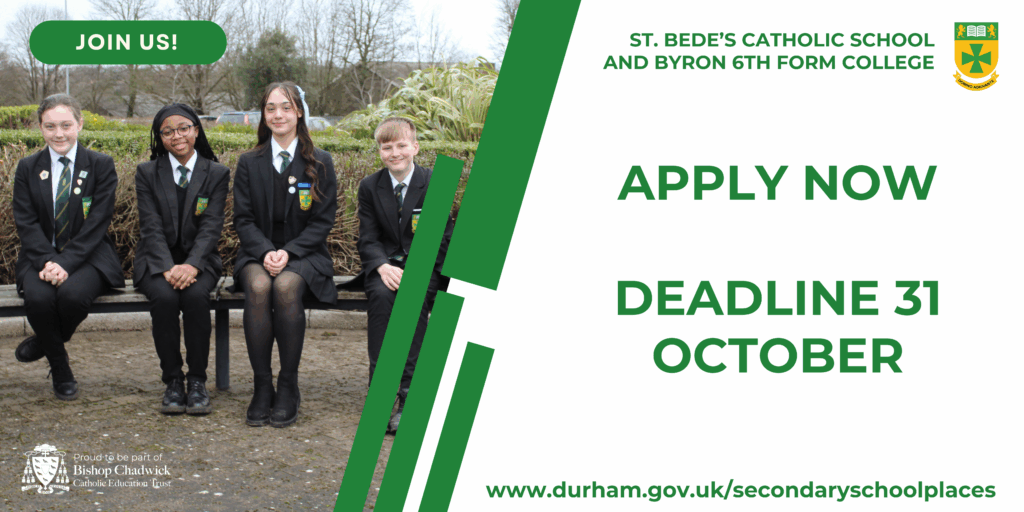At St Bede’s our intention is for our students to
- develop a life-long love of music in all its forms from around the world and a curiosity to investigate and find out more about how it is composed, by who, when, why etc.
- develop a culture of singing as a community in both class and during collective worship.
- develop key skills in performance and composition using relevant music notation.
- develop musical literacy using appropriate key terminology in written and oral answers to describe the music they are hearing, performing or composing.
- develop students who build upon the skills developed during the KS2 curriculum and provide opportunities to support the transition to GCSE and A-Level.
- understand how music in used in everyday life from adverts, to films, to tv shows and how it is used to influence a personal response
- understand musical/performing arts career choices, allowing them to make informed choices about their next steps in education or work life.
This is an ambitious curriculum building upon the foundations of the Key Stage 2 curriculum developed by Bishop Chadwick Catholic Education Trust and aims to develop students as musicians while also developing a life-long passion for music.
It is designed to ensure students develop the ability to listen to, analyse, perform and compose music in a variety of scenarios. Students will continue to develop their ability to use the elements of music found with the areas of technical control and expressive areas of the curriculum map to develop their musicianship.
Pulse & Rhythm
Students will be able to develop and maintain a clear pulse in a range of scenarios. Students will further develop their knowledge of rhythm notation from that which they used in Key Stage 2. Students will have the opportunity to use rhythmic notation to compose, improvise and perform pieces of music in a variety of different genres and styles.
Melody
Students were exposed to pitch notation of up to an octave in Key Stage 2 using the Treble Clef. Students will develop their musical literacy and be able to read pitch notation in both the Treble and Bass Clef to compose and perform music accurately and proficiently. Students will compose using staff notation, developing skills in melody. Students will make use of major and minor scales up to two sharps or flats as well as the Blues Scale.
Listening and Appraising
To be able to listen to, analyse and pick out features within any piece of music is a highly important skill for developing oral skills, as well as developing skills as composers and performers. Students are offered the opportunity to develop active listening skills by listening to recordings of existing pieces of music as well as live performances by professional musicians and members of the school community. This area of the course allows students to explore music from each period of musical history as well as to develop their own personal tastes.
Performing
Students are to become active, confident and proficient performers using relevant notation. Students can perform existing pieces of music while also developing performances of their own compositions using instruments and digital tools. Students will have the opportunity to develop performances as soloists and members of ensembles.
Singing
students will become confident singers. Students will perform pieces in unison, two and three parts. Pieces will be chosen to demonstrate the broad variety of musical styles as well as to demonstrate features of styles studied throughout the key stage.
Composition & Improvisation
Students can work in different areas to develop their compositional skills using rhythmic and melodic notation as well as the scales they have discovered during areas of the curriculum. Students will compose in relevant notations (chord charts, staff notation, digital DAW etc).



